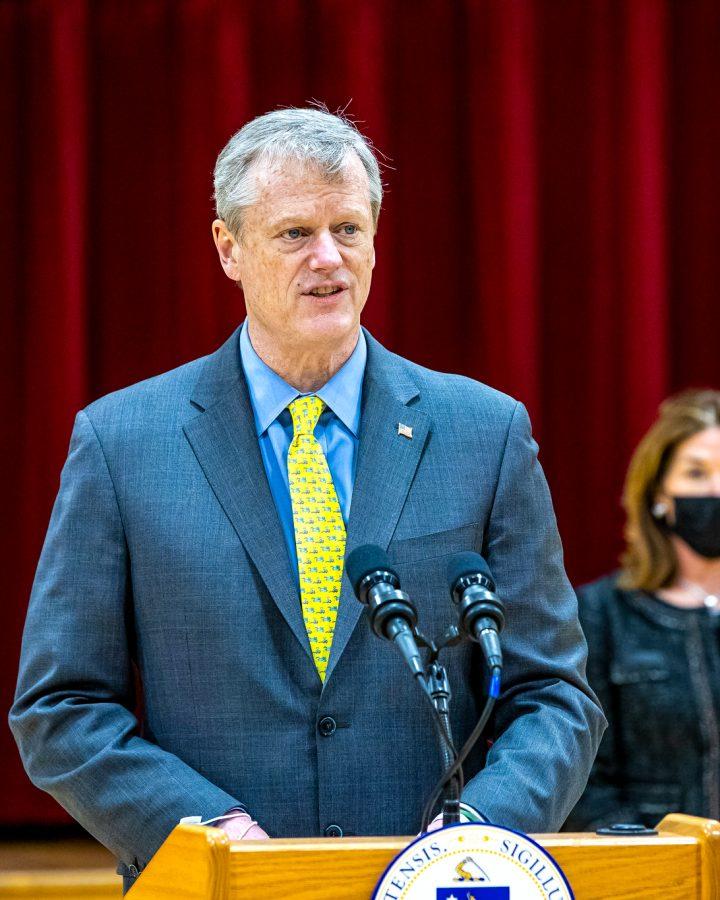On Monday, March 1, Massachusetts officially moved into a new phase of its COVID-19 reopening plan. With the shift into Phase Three, Stage Two of the state’s four-phased plan, a plethora of restrictions have been loosened, and Gove. Baker has made announcements regarding further loosening of COVID-19 restrictions in the near future.
Restaurants no longer have capacity limits, but only six people are allowed per table, and a 90-minute time limit and social distancing policy will remain in place.
Indoor performance venues such as theaters and concert halls are allowed to open up at 50 percent capacity. No more than 500 people are allowed inside a venue.
Smaller, indoor recreational centers such as trampoline parks, roller rinks, obstacle courses, and laser tag are also allowed to reopen at 50 percent capacity, despite the higher chance of visitors of these centers coming in contact with each other.
Private gatherings in homes or other private outdoor spaces have remained the same. 10 people are allowed indoors, and 25 people are allowed outdoors.
Boston has modified this Phase Three, Step Two plan slightly.
While most businesses will be allowed to operate at 50 percent capacity, indoor performance venues and recreational venues where visitors have the potential to come in close contact with each other will remain closed until March 22 in Boston.
Additionally, live music performances in restaurants will not be allowed to restart until that date, while restaurants in other parts of the state have allowed live musicians to play since March 1.
Gov. Baker fully intends to move forward in the state’s reopening plan—and in the reopening of schools—”as long as public health metrics continue to improve,” according to masslive.com.
Phase Four is planned to begin on March 22.
At the commencement of Phase Four, large outdoor and indoor venues would allow attendees to return, should local jurisdictions also be in favor of this decision. This means Gillette Stadium, TD Garden, and Fenway Park would be able to reopen at 12 percent capacity in just a few weeks.
The state of Massachusetts has not yet reached Phase Four since the beginning of the pandemic. In October, the state moved into Phase Three, Step Two; however, it was pushed back a step on Dec. 13.
Gov. Baker is also pushing for the reopening of schools starting in April. Governor Baker made the announcement on Tuesday, Feb. 23, and according to usnews.com, he cited “mounting concerns over students’ academic loss and deteriorating mental health” as the reason for joining other state leaders in this effort.
Gov. Baker’s process for reopening schools in Massachusetts would begin with full-time, in-person learning beginning at the elementary school level, with middle schools following in a phased reopening approach.
Boston.com reports that CDC guidelines suggest that only Franklin county in rural, western Massachusetts could safely reopen elementary schools. The website cites an analysis published by The New York Times as evidence that only Franklin county has a low enough frequency of COVID-19 cases to meet the guidelines set forth by the CDC for fully reopening elementary schools.
As of March 4, more than 1.3 million first doses of the vaccine have been administered in the state of Massachusetts, while more than 600,000 second and final doses have been administered.
“Obviously [it’s] great to see the data moving in the right direction,” said Gov. Baker according to NBC Boston. “That makes it possible for us to make some adjustments. It doesn’t mean, however, that people can or should let down their guard.
“And it’s also critically important, as we roll this out, that we make sure we get to every community in the Commonwealth,” continued Baker.
For more information regarding the reopening of Massachusetts, visit: https://www.mass.gov/info-details/reopening-massachusetts.
Massachusetts moves to Phase Three, Step Two of COVID-19 reopening plan
March 5, 2021

